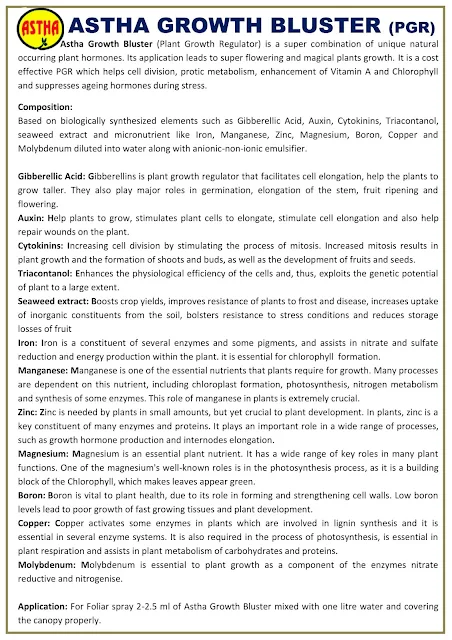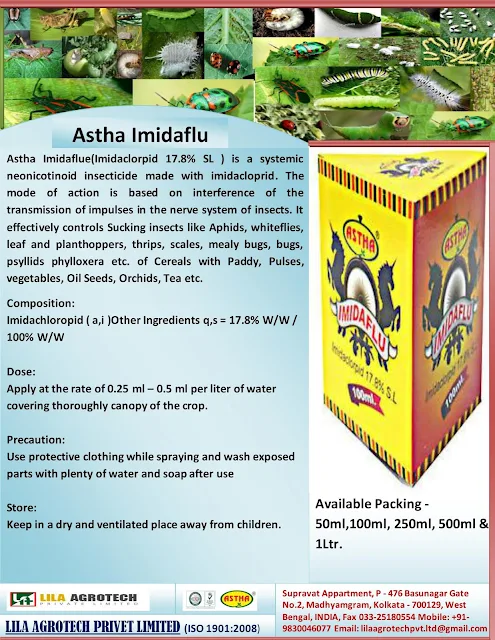What is Bio Potash? Bio Potash is a potassium-rich organic fertilizer designed to fulfill your plants' potassium needs. Potassium is a vital nutrient that supports plant growth, enhances nutrient uptake, and improves disease resistance. Here’s why Bio Potash is a must-have:
Rich in Potassium: Supplies an easily absorbable form of potassium that supports robust plant growth and nutrient uptake.
Water-Soluble: Can be applied via foliar spray, drip irrigation, or fertigation for efficient absorption.
Corrects Potassium Deficiency: Perfect for potassium-deficient crops like bananas, papayas, and arecanuts.
Enhances Stress Tolerance: Helps plants withstand stress caused by drought or high temperatures.
Improves Quality: Enhances the size, color, and taste of fruits and vegetables.
What are Potash Mobilizers? Potash Mobilizers like Astha KMB are bio-fertilizers that work by converting unavailable forms of potassium in the soil into forms that plants can absorb. This unique capability ensures efficient utilization of existing potassium reserves in the soil.
Universal Application: Works on all soil types, making it a versatile solution for farmers.
Boosts Potash Absorption: Enhances potassium uptake, leading to healthier plants and higher yields.
Supports Photosynthesis: Ensures proper chlorophyll formation for better photosynthesis and energy production.
Improves Resistance: Helps plants resist harsh conditions like heat and drought.
Better Quality Produce: Leads to superior fruit and grain quality, with improved color, taste, and nutritional value.
Benefits of Using Both Bio Potash and Potash Mobilizers: When used together, Bio Potash and Potash Mobilizers offer a synergistic effect, providing unmatched benefits for your crops and soil:
Disease Resistance: Both improve plant immunity, making them less vulnerable to fungal, bacterial, and viral infections.
Enhanced Soil Health: Improves soil structure and fertility by replenishing potassium levels organically.
Superior Crop Quality: Results in larger, tastier, and more marketable fruits and grains.
Increased Yield: Encourages higher production levels, ensuring better returns for your investment.
Eco-Friendly: Organic and safe for the environment, ensuring long-term sustainability for your farm.
How to Apply Bio Potash and Potash Mobilizers:
Foliar Spray: Mix Bio Potash in water and spray directly onto the leaves for quick absorption.
Drip Irrigation/Fertigation: Apply Bio Potash through drip lines for even distribution.
Soil Application: Use Astha KMB directly in the soil to unlock potassium reserves.
Combination Use: For best results, integrate both products into your routine to maximize their benefits.
Real-World Applications:
Banana Farming: Prevents leaf yellowing, promotes uniform fruit development, and enhances yield.
Vegetable Crops: Improves fruit size, color, and shelf life.
Grain Crops: Increases grain filling, weight, and overall productivity.
Orchards: Enhances flowering and fruiting, ensuring maximum profitability.
Why Choose Astha KMB by Lila Agrotech? At Lila Agrotech, we are committed to helping farmers achieve sustainable agriculture with innovative bio-solutions. Astha KMB is a trusted product, backed by research and farmer testimonials, ensuring unmatched efficiency and reliability.


.png)



















































